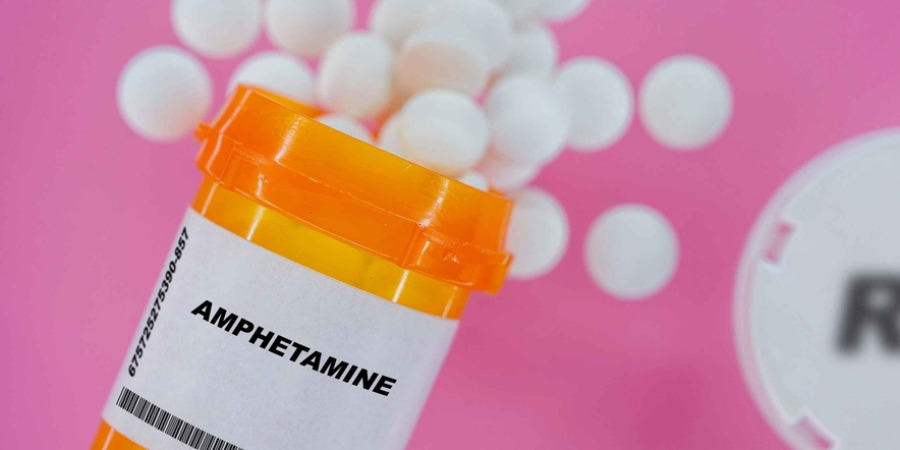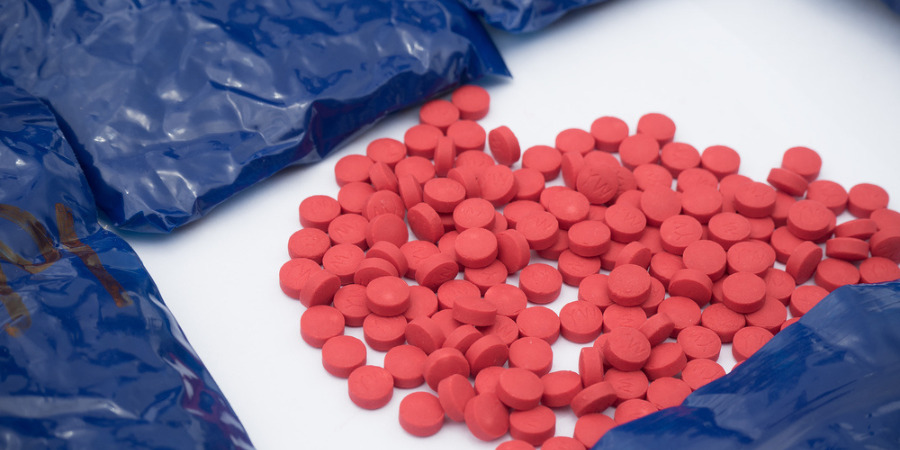
Written by:

Medically Reviewed by:
Last Updated:
February 14th, 2025
Amphetamine Rehab
What is amphetamine rehab?
Amphetamine rehab is a structured treatment programme designed to help individuals overcome addiction to amphetamines. This process typically includes a medically supervised detox, therapeutic interventions and aftercare support. It’s aimed at addressing both the physical and psychological aspects of addiction, guiding you toward a healthier, more balanced life.
At Liberty House, we offer a compassionate and personalised approach to ensure you feel supported at every step of your recovery journey.
Is amphetamine rehab necessary for me?
Amphetamines are known for their intense high, which can quickly create a sense of false control. This often blurs the line between occasional use and addiction, leaving individuals unaware of the extent of their dependency.
Recognising the need for rehab can be challenging but is a crucial step toward reclaiming your life.
To help you reflect on your relationship with amphetamines, here are five questions to consider. Answering “yes” to any of these could indicate the need for professional support:
- Do you find yourself craving amphetamines to feel energised or focused?
- Have you tried to cut down or stop but found it too difficult?
- Do you experience withdrawal symptoms like fatigue, irritability or depression when not using amphetamines?
- Is your amphetamine use affecting your relationships, work or daily responsibilities?
- Have you increased your dosage to achieve the same effects as before?
How is the amphetamine rehab programme structured?
Starting rehab can feel daunting, especially as amphetamine addiction is often deeply personal, leaving many reluctant to share their experiences. Understanding the process can help alleviate fears and show you what to expect at Liberty House.
Initial assessment
Your journey begins with a comprehensive assessment. This allows our team to understand your medical history, addiction severity and personal goals. By tailoring the programme to your unique needs, we ensure you receive the best possible care from day one.
Detox
Detox is the process of clearing amphetamines from your system. Withdrawal symptoms, such as exhaustion, mood swings and intense cravings, can be challenging. At Liberty House, our medical team is available around the clock to manage these symptoms, providing both physical and emotional support to keep you safe and comfortable throughout.
Therapy
Therapy is the cornerstone of our amphetamine rehab programme, helping you address the underlying factors contributing to addiction. Our approach includes one-to-one counselling, group therapy, and evidence-based techniques such as cognitive behavioural therapy (CBT) and dialectical behavioural therapy (DBT). Holistic therapies such as yoga and art therapy are also available, allowing for creative expression and mental clarity.
Aftercare
Recovery doesn’t end when you leave rehab. Our aftercare services provide ongoing support to help you transition back into daily life. With follow-up sessions and relapse prevention strategies, we ensure you have the tools needed to maintain your progress and continue thriving.
A closer look at why therapy is the cornerstone of amphetamine rehab
At Liberty House, we understand that recovery from amphetamine addiction requires more than physical detox – it also involves addressing the emotional and psychological factors behind addiction. That’s why therapy forms the cornerstone of our programme. By treating both the body and the mind, our therapies empower you to rebuild your life with confidence and resilience.
Below, we explore the therapies we offer and their unique benefits for overcoming amphetamine addiction.
Cognitive behavioural therapy (CBT)
CBT is a structured, goal-oriented therapy that focuses on identifying and changing negative thought patterns and behaviours. It equips individuals with practical tools to challenge unhelpful beliefs and develop healthier ways of thinking.
Why is it effective for amphetamine addiction recovery?
Amphetamine addiction often stems from deeply ingrained thought patterns, such as using the drug to boost productivity, escape stress or enhance social confidence. CBT helps you recognise these triggers and teaches alternative coping strategies.
For example, if stress leads to cravings, CBT might help you develop relaxation techniques or time-management skills, reducing the reliance on amphetamines to function.
Dialectical behaviour therapy (DBT)
DBT combines elements of CBT with mindfulness and emotion regulation techniques. It helps individuals learn how to manage intense emotions, improve interpersonal relationships and tolerate distress without resorting to harmful behaviours.
Why is it effective for amphetamine addiction recovery?
Amphetamine use often leads to emotional highs and lows, creating a cycle of dependency to maintain a sense of control. DBT is particularly useful for managing these emotional swings and teaching skills to handle frustration, anxiety and other triggers without turning to substances.
For example, mindfulness practices help you stay grounded during moments of intense cravings, reducing the risk of relapse.
Group therapy
Group therapy brings together individuals in recovery to share experiences, challenges and progress in a supportive, professionally guided setting. It creates a sense of community and fosters mutual understanding.
Why is it effective for amphetamine addiction recovery?
Amphetamine addiction can be isolating, as shame or secrecy often prevent open communication. Group therapy breaks down this isolation by connecting you with others facing similar struggles. Hearing others’ stories can provide practical insights into overcoming challenges while sharing your own experiences can boost confidence and self-awareness.
One-to-one therapy
One-to-one therapy offers a private, tailored space to explore the root causes of addiction. A trained therapist works closely with you to address personal struggles, such as trauma, low self-esteem or co-occurring mental health conditions.
Why is it effective for amphetamine addiction recovery?
Amphetamine addiction is often linked to deep-seated issues like unresolved trauma or self-image concerns. For example, some people may use amphetamines to combat feelings of inadequacy or body dysmorphia. One-to-one therapy provides a safe environment to uncover and address these factors, helping you rebuild confidence and learn healthier ways to cope.
Holistic therapies
Holistic therapies focus on healing the whole person: the mind, body and spirit. Art therapy encourages creative expression, yoga promotes physical and emotional balance, and meditation fosters mindfulness and inner calm.
Why are they effective for amphetamine addiction recovery?
Amphetamines often leave users feeling disconnected from their bodies and emotions. Holistic therapies help rebuild this connection. Here’s how each holistic therapy can help:
- Art therapy provides a non-verbal outlet for processing complex emotions, such as guilt or anger often associated with addiction.
- Yoga helps restore physical health and fosters a positive body image, which is especially important for those who have struggled with amphetamine-induced weight fluctuations.
- Meditation teaches mindfulness, enabling you to manage amphetamine cravings and stay present during challenging moments.
Together, these therapies nurture emotional resilience and provide tools for long-term recovery.
Take the first step toward recovery
If amphetamine addiction is affecting your life, Liberty House is here to help. Our compassionate team is ready to support you every step of the way, providing personalised care in a safe and understanding environment. Reach out today to start your journey toward freedom from addiction and a brighter future.






